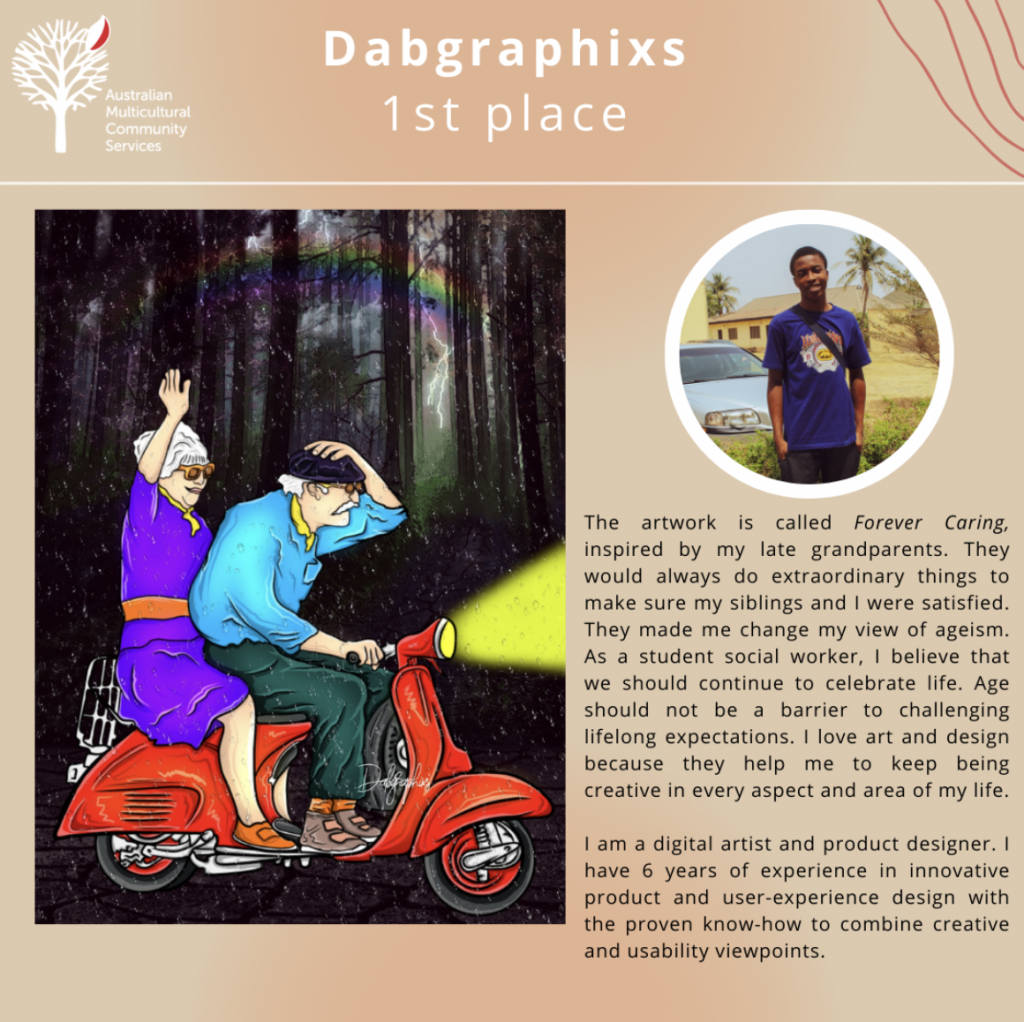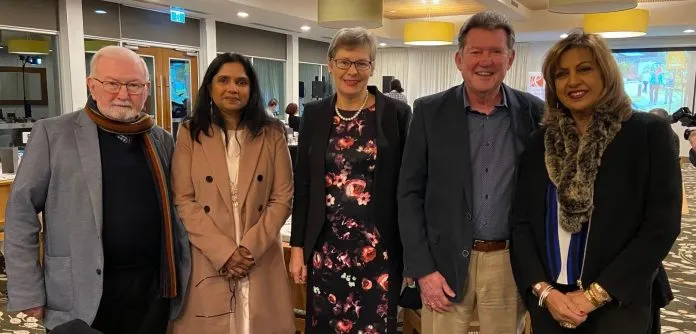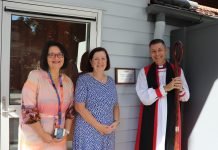In this interview, Inside Ageing (IA) spoke with Elizabeth Drozd the CEO of Australian Multicultural Aged Care Services (AMCS) – a role she has held for more than 20 years — expanding AMCS from a $3.6 million community charity organisation in 2016 to $22 million in 2022.
IA: Congratulations on winning the Leading Age Services Australia (LASA) 2022 Executive Leader Award. In accepting the award you commented that much of your efforts are now spent mentoring the leaders of tomorrow. Can you tell us a little about that?
Elizabeth: I was very pleased to receive LASA’s Executive Leader Award. The achievement is for Team AMCS. I truly thank all AMCS staff and volunteers for their incredible commitment, support and passion to the older population.
AMCS offer many career opportunities and promotes staff based on merit. We offer free online courses, targeted training and opportunities to attend and present at conferences. In 2022, we will have our inaugural coaching program for our current and upcoming leaders. Each staff member has a passion for improving the lives of multicultural seniors. I am committed to creating a work environment for employees to learn, be inspired and reach their full potential, using these skills to benefit the wider community.
IA: There has been much written about the labour shortages in aged care. Is that shortage impacting your ability to find future leaders, and/or even retain the ones that you have? Over your 20 years at AMCS have these workforce issues been ongoing or are they more recent?
Elizabeth: The aged care industry needs to recruit more staff urgently to support seniors who are waiting for services or need more services. Vaccine requirements and COVID-19 have made the situation even more difficult. In October, AMCS lost 15% of direct care staff because of vaccine mandate hesitancy, an issue experienced sector-wide. There have been several reports done that highlight the workforce shortages over the last 10 years and now the situation has reached a critical stage and this will not improve significantly in the next 12 months. One of the reasons is the inadequate wages for those who work on the front line.
I am grateful to have loyal and dedicated staff. Each employee is devoted to improving the lives of seniors and supporting the most vulnerable in our community. At the same time, right now, AMCS needs at least 30 direct care staff to provide adequate support to seniors who need assistance to remain living in their own homes.
IA: Inside Ageing recently carried a story about a program to train migrant women who are unemployed for placement in care roles. The training is in Ryde LGA (NSW), with training provided by the local Community College with qualifications in areas such as Personal Care. It feels like such a great idea, and I wonder if some of aged care’s workforce shortages could be helped by a training program that engages unemployed or underemployed people from diverse communities – Read the story here… What is your view?
Elizabeth: Training to provide qualifications in Ryde LGA (NSW) is a good initiative and such partnerships are occurring in many different states in Australia. However, part of the challenge that exists is the fact that we are experiencing one of the lowest unemployment levels in Australia and there simply are not enough people applying for training or existing jobs. Through the AMCS Adult Community Further Education program, we offer a variety of free short courses for people to learn new skills and find the right job. This includes the Careers in Aged Care course to support individuals to secure work in the industry.
As someone that has worked in the industry for over 30 years, I share my knowledge and experiences with students undertaking their Graduate Certificate in Aged Care Management at the University of Tasmania by presenting governance in aged care.
I recently called on state and federal governments to make an urgent provision to subsidise the Certificate III in Aged Care, even if an individual has higher qualifications already or has completed a government-subsidised Certificate III in another field. I also called on the Federal Government to urgently prepare an employer sponsorship scheme for direct care staff, clinical and allied health candidates to come to Australia and fill the vacancies for the 1,000+ aged care providers.
IA: You have also held the role of Commissioner with the Victorian Multicultural Commission, so your involvement with Culturally and Linguistically Diverse (CALD) communities has been across many different areas. What have been the biggest challenges that you have faced in supporting these groups?
Elizabeth: As a past Victorian Multicultural Commissioner, I was the conduit between communities and government as well as other relevant statutory bodies, engaging with diverse groups to understand the challenges they face. There are three key issues that migrant communities need support.
1. Funding to ethno-specific community organisations to assist them in supporting the members of their communities.
2. Adequate access to accommodation based on their needs.
3. Equitable and non-discriminatory access to services and opportunities.
From my experience, addressing these three identified community needs can make the biggest difference in CALD people’s lives.
IA: One only has to listen to you speak (watch below) to understand the passion you have for CALD communities. What have been your career highlights and some of your proudest achievements?
Elizabeth: As someone who arrived in Australia as a young adult with the support of the Special Humanitarian Program available to people like me who were feeling the communist regime in Poland, I have been most fortunate to start a new life in Australia. I spoke no English and had no qualifications when I arrived. I was fortunate to bring many ‘aspirations’ in my luggage and turn barriers into opportunities. After several years in Australia, I enrolled in the Bachelor of Arts (Multicultural Studies) as a mature age student and a few years later completed my Masters in Social Sciences. I have dedicated all of my professional life to the betterment of migrant communities and individuals. One of the things I find most satisfying is when my efforts help migrants secure employment because this helps people to be independent, support their families and participate more fully in community life.
At the beginning of my career, I also established several not-for-profit community groups, especially for CALD seniors. Now, 30 years later, I am most proud to attend the 30th anniversary of those associations, who have done so much for their members and the general community’s well-being.
Twenty years ago, I initiated the establishment of the National Network of Multicultural Aged and Community Care Providers, which has been valuable as a peer support network to achieve greater access and equity, and overall service responsiveness.
Ten years ago, alongside AMCS Board Director Professor Desmond Cahill, I co-facilitated and co-mentored IndianCare’s establishment. This is particularly significant and impactful given that the Indian community is now the largest CALD community in Victoria, and most likely in Australia.
Five years ago, I established the Multicultural Leadership Course at AMCS to mentor smaller and emerging CALD community leaders. The program has had more than 200 participants including committees of the Papua New Guinea Association of Victoria and the Syrian Charity Association.
I have been in a privileged position to make a positive impact on multicultural communities. I look forward to continuing to link communities together and proudly serving for many years to come.
IA: Through the Service Development and Assistance Panel (SDAP) program, you work to provide culturally appropriate local solutions to deliver quality aged care services to First Nations communities. Can you tell us a little about this program and the current situation with care in these groups?
Elizabeth: Through the Service Development and Assistance Panel (SDAP) program, AMCS Senior Manager of Care Coordination and Quality Deborah D’Costa and I provide culturally appropriate mentoring and support with regard to the quality and compliance of aged care services to Aboriginal and Torres Strait Islander communities. Aged care providers in remote and rural areas face challenges like the higher cost of providing services, limited access to professional support, less skilled workers and keeping up to date with the aged care system, changes and compliance requirements. Everyone should have access to the same knowledge and opportunities regardless of circumstances. As part of AMCS’s dedication to inclusivity and collaboration, Deb and I share our expertise with the First Nations professionals and staff who work in Indigenous aged care organisations located in various rural areas in Australia.
IA: You are also an advocate of anti-ageism, launching a report in 2020 that founded the eight attributes to ageing well — respect, financial and personal security, health autonomy, mobility, purpose and connection to family, friends and society. What can you tell about your vision behind this and perhaps what prompted you to inspire such a report?
Elizabeth: On 12 November 2020, I co-launched a report to respond to the eight attributes. The Victorian Government established a Senior Victorians Advisory Group, led by Commissioner for Senior Victorians Gerard Mansour. I am a proud member of The Advisory Group and offer my guidance on how government support for senior Victorians can thrive as we emerge from the pandemic and advocate for an inclusive approach.
Ageism is one of the most commonly accepted (and most subtle) forms of discrimination, yet people rarely discuss it. Seniors have much wisdom and life experiences to share. I was very excited when I received my pensioner card two years ago. As the most experienced and wisest members of any society, seniors deserve to live their best years and be treated with respect. Unfortunately, that is not the case and the Australian Human Rights Commission has confirmed that through its research into aged-related discrimination.
As part of my commitment to working with seniors for so many years, I wanted to do something to make a difference, to make a contribution. Last year, I initiated the AMCS Inaugural Anti-ageism Art Challenge to depict positive ageing and challenge negative stereotypes. We were very pleased with the entries in 2021 and the 2022 annual competition has been a resounding success. This year’s winner was a digital painting of a senior couple riding a motorbike in the rain. The artist’s late grandparents often did extraordinary things and inspired him. I am also pleased that this completion has generated a significant amount of interest among other strong champions of anti-ageism eg. The Benevolent Society — Every Age Counts campaign as well as the Victorian Commissioner for Senior Victorians.

This year, we also held a competition, seeking ideas about reducing social isolation among seniors. AMCS will distribute the winning idea of a biography pack to give older adults an opportunity to tell and document their stories.
Furthermore, AMCS and I support National Seniors Australia’s campaign “Let Pensioners Work!” to boost retirement incomes and meet crippling labour force shortages. According to the Department of Social Services, only 2.9% of pensioners, 74,000 of the 2.6 million, receive income from employment. Employers often overlook and discriminate against older Australians. In a time of limited staffing resources, particularly in the aged care sector, seniors can be the solution in filling much-needed roles.
The campaign aims to increase the income and savings of pensioners, offer social and emotional benefits from workforce engagement, and show that seniors’ work experiences are valuable to employers. It is certainly time that Australia did not have one of the lowest participation of seniors in employment, among the OECD countries.
IA: There has been a lot of discussion about migration playing a bigger role in helping attract workers to the aged care sector, including an increase in the migrant intake to 195,000 people as announced at the recent Jobs & Skills Summit. What is your view on migration in the context of aged care, especially its role in helping alleviate workforce issues?
Elizabeth: I have always been a strong advocate for high migrant intake and humanitarian and humane treatment of asylum seekers and refugees.
As a multicultural care organisation, AMCS strongly depend on multilingual staff. Pre-COVID, Australia received between 130,000 – 220,000 immigrants annually compared to 40,000 per annum in the last two years. While many of AMCS’ 1,700 clients speak English, they often communicate more efficiently in their native language.
AMCS offer many migrants work for the first time in Australia. Due to border closures, meeting the needs of seniors has been challenging. I addressed the workforce issues on ABC’s 7:30 Report, The Guardian and SBS in an effort to shine a light on the current challenges we are facing. There have been many changes in the community sector over the years. We will overcome these challenges through the industry’s resilience, managing uncertainty and collectively practising good leadership to reach the same goals.










